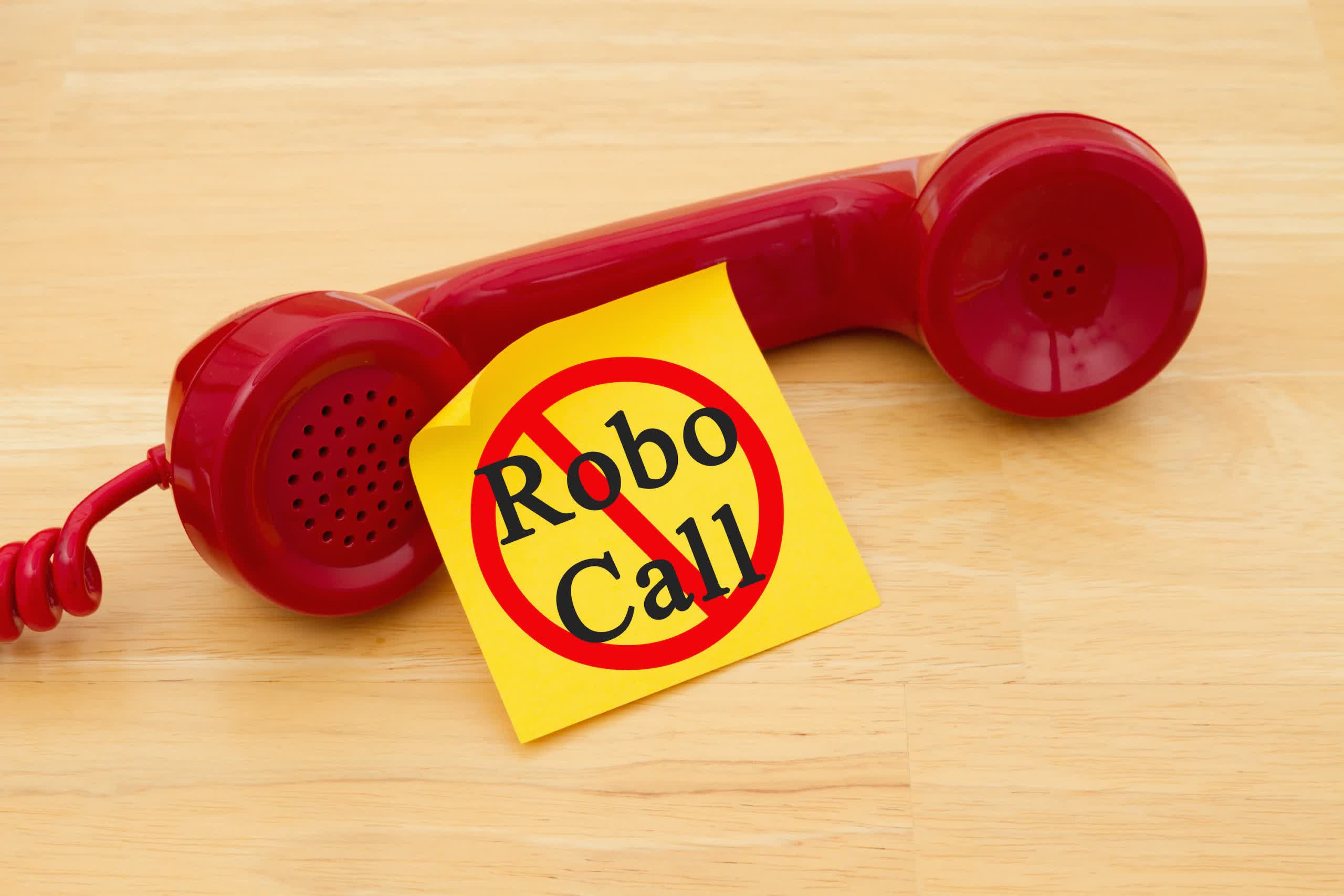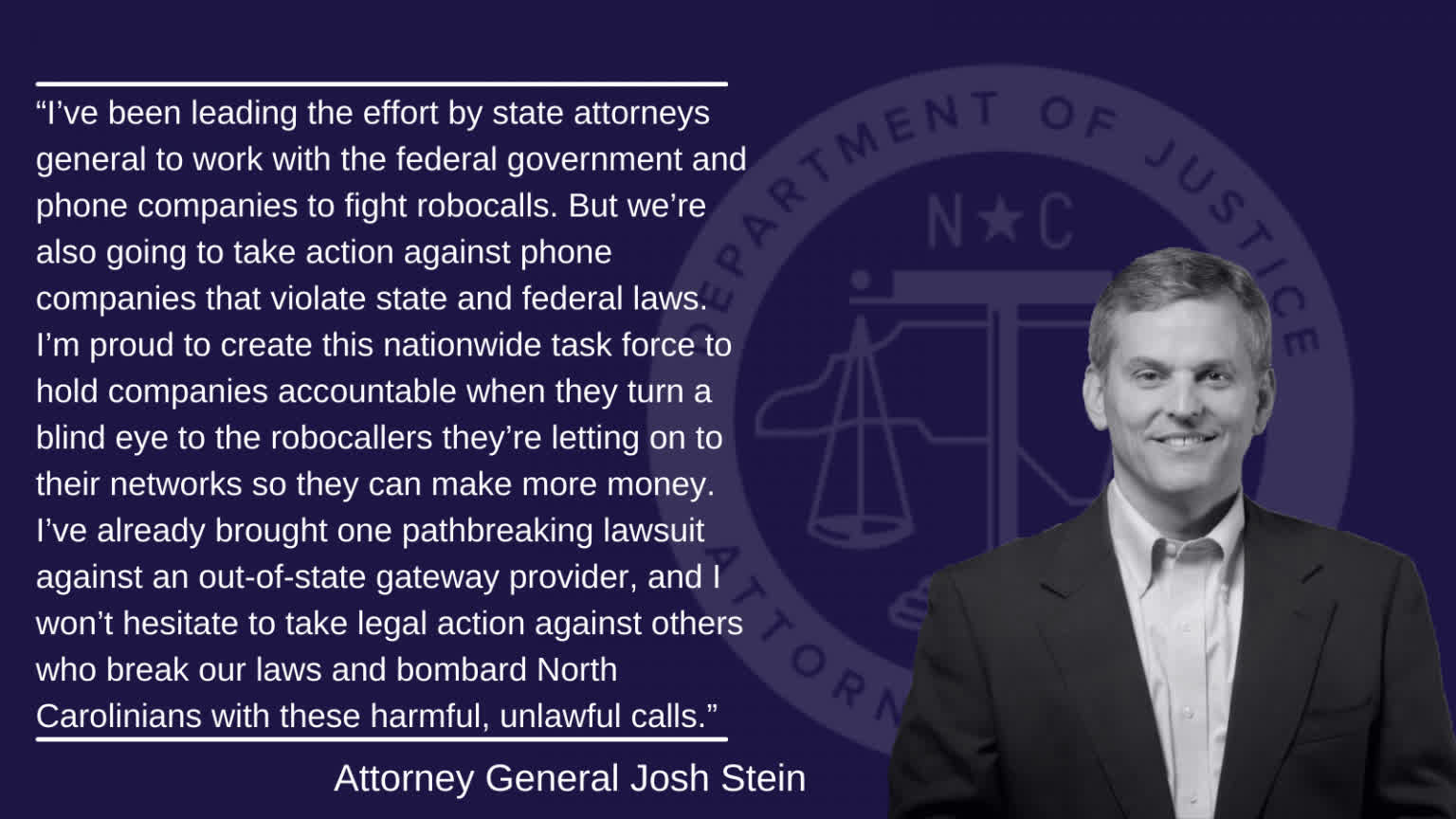In context: Robocalls are a nuisance at best and a threat to personal information and financial security at worst. While telecoms have made efforts to reduce automated and scammy telemarketing calls, they are still a significant problem because of the lack of enforcement to entities outside United States jurisdiction.

To address the situation, a consortium of US attorneys general has formed a task force to give current anti-robocalling and telemarketing laws and regulations more teeth. They propose going after what they call "gateway providers." These are telecoms that enable or allow this type of traffic onto their networks, usually because they stand to profit from it.
North Carolina AG Josh Stein, Indiana's Todd Rokita, and Ohio AG Dave Yost head up the newly formed Anti-Robocall Litigation Task Force. The group includes AGs from all 50 states. It aims to fight robocalls by suing US gateway providers, which in theory would be more effective than trying to litigate against fly-by-night foreign companies that are the source of the calls.
"I've been leading the effort by state attorneys general to work with the federal government and phone companies to fight robocalls," said Stein in a press release announcing the task force. "But we're also going to take action against phone companies that violate state and federal laws."
Stein points out that he has already filed one lawsuit against a gateway provider from outside his state of North Carolina called Articul8. This company allegedly routed over 65 million robocalls to phone numbers in his home state alone, resulting in some 50 to 200 calls per day for NC residents.

The AG also cites studies showing that of all the automated calls made to US residents, over 33 million are scams, including Social Security cons targeting seniors, fake Amazon reps, and other fraudulent calls. Analysts estimate that scam operations stole almost $30 billion from US residents in 2021, most of it coming from offshore companies.
As long as US providers can rake in profits from shady telemarketers and scammers outside the States, they will. So the task force aims to hit these providers in their pocketbooks to discourage them from enabling these annoying and threatening calls.
Will their efforts be enough to stop all automated calls? Of course not. Some robocalls are legitimate. For instance, rings from your child's school or school district informing you of events, closures, and other school-related information are legal under all current legislation. Targets are only those that look to rip people off, which is still a gray area under the law.
For example, are companies trying to sell you an extended warranty on your car scams or legit business calls? It could go either way. As long as the company does sell what it says and is not just phishing or taking your money while providing nothing, regulators consider it legal even though it can be just as annoying as scam calls.
Anything that shoots to reduce the number of robocalls everyone receives daily should be welcome. Of course, time will tell exactly how effective the Anti-Robocall Litigation Task Force is.
Image credit: Karen Roach
https://www.techspot.com/news/95529-50-us-attorneys-general-promise-litigation-against-telecom.html